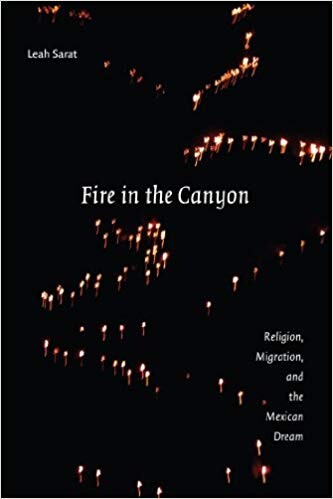Fire in the Canyon
Subtitle
Religion, Migration, and the Mexican Dream
The canyon in central Mexico was ablaze with torches as hundreds of people filed in. So palpable was their shared shock and grief, they later said, that neither pastor nor priest was needed. The event was a memorial service for one of their own who had died during an attempted border passage. Months later a survivor emerged from a coma to tell his story. The accident had provoked a near-death encounter with God that prompted his conversion to Pentecostalism.
Today, over half of the local residents of El Alberto, a town in central Mexico, are Pentecostal. Submitting themselves to the authority of a God for whom there are no borders, these Pentecostals today both embrace migration as their right while also praying that their “Mexican Dream” — the dream of a Mexican future with ample employment for all — will one day become a reality.
"Fire in the Canyon" provides one of the first in‑depth looks at the dynamic relationship between religion, migration, and ethnicity across the U.S.-Mexican border. Faced with the choice between life‑threatening danger at the border and life‑sapping poverty in Mexico, residents of El Alberto are drawing on both their religion and their indigenous heritage to demand not only the right to migrate, but also the right to stay home. If we wish to understand people's migration decisions, Sarat argues, we must take religion seriously. It is through religion that people formulate their ideas about life, death, and the limits of government authority.
Bio
Leah Sarat is an associate professor of religious studies in ASU's School of Historical, Philosophical and Religious Studies.
Praise for this book
'Fire in the Canyon. will engage readers at all levels with its accessible prose and memorable life stories. The chapter on Caminata Nocturna should especially interest undergraduate students with its unique perspectives on border crossing. […] Sarat conveys the great dedication to community that persists in this town, despite all the divisions that it faces — of religious factionalism, modernization, and, most of all, immigration.
Hispanic American Historical Review
Through finely woven voices and descriptions of actors and locations in a life drama that transcends geographical and religious borders, Leah Sarat’s ethnography of the indigenous people of El Alberto ... offers its readers an opportunity to witness the fantastic capacity of seemingly marginal peoples to selectively appropriate religious and economic impositions in an effort to carve out a future that makes sense to them, and, hopefully their children.
Ella Schmidt Author of "The Dream Fields of Florida: Mexican Farmworkers and the Myth of Belonging"
